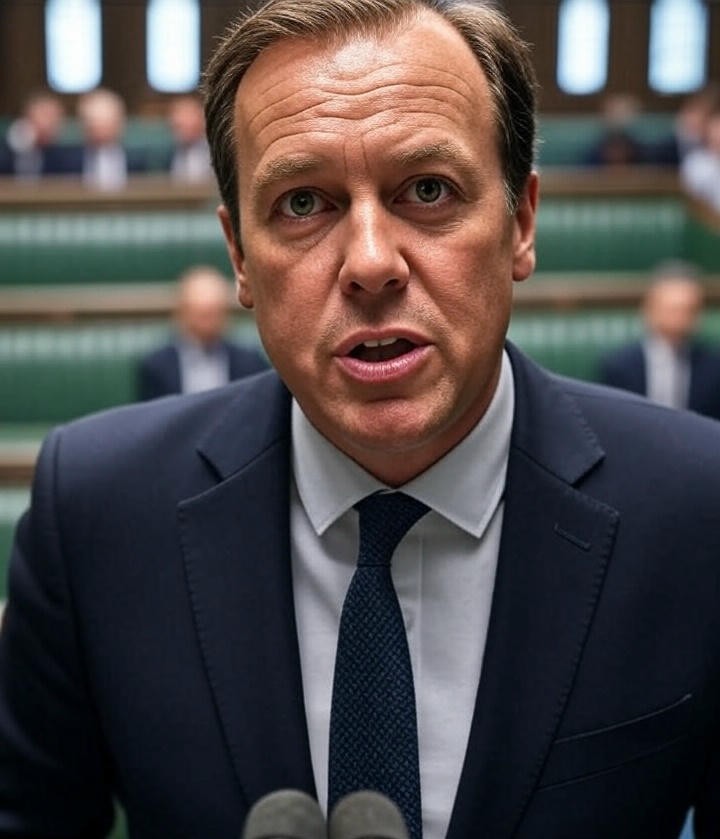The United Kingdom is stepping into a new economic era. On Monday UK Finance Minister Rachel Reeves announced a major plan to strengthen the country’s economy. This £2 trillion plan is focused on healthcare, defense and infrastructure. The goal is to improve public services, boost jobs and help the country grow after years of slow development and high inflation.

What Is the UK Budget Revitalization Plan?
The UK Budget Revitalization Plan is a new government strategy aimed at restarting economic growth. The government will spend £2 trillion over the next few years. The money will be used mainly in three important areas:
- Healthcare
- Defense
- Infrastructure
Each of these areas plays a big role in supporting the country’s economy, safety and overall quality of life.
Why Is This Plan Important Now?
Over the past few years the UK economy has faced several problems:
- High inflation, which made things more expensive for people
- Slow growth, with businesses struggling to expand
- COVID-19 effects, including pressure on hospitals and public services
- Brexit impacts, which made trade more difficult
Because of these issues many people feel that the country needs a fresh and bold plan to move forward. The new budget aims to address these challenges and create better opportunities for everyone.
Focus Area 1: Healthcare
One of the biggest parts of this plan is to improve the National Health Service (NHS). During COVID-19 hospitals were stretched thin. Many people had to wait a long time for surgeries, treatments or even basic doctor appointments.
Under the revitalization plan:
- More money will go into hiring doctors, nurses and care workers
- The government will build new hospitals and clinics
- Investment in technology will make it easier to book appointments and get care quickly
- Mental health services will get additional funding especially for young people
Rachel Reeves said that healthcare is not just a moral duty but also an economic priority. Healthy people are more productive and investing in the NHS helps the country in the long run.
Focus Area 2: Defense
The second major focus is national defense. In recent years, global tensions have increased. The war in Ukraine, rising threats in the Middle East, and cyber attacks from abroad have all reminded the UK of the importance of strong defense systems.
Here’s how the budget will strengthen defense:
- More spending on military equipment, including ships, aircraft and cyber defense tools
- Increased support for armed forces personnel including training and salaries
- Greater investment in UK-based defense industries helping create jobs and protect national security
The government also wants to work closely with NATO and support allies around the world. By boosting defense spending, the UK aims to remain a powerful and trusted global partner.
Focus Area 3: Infrastructure
The third part of the budget plan is infrastructure development. This means improving the country’s basic systems—like roads, railways, energy networks and digital services.
Some key highlights include:
- Building faster and more efficient train lines especially in the north of England
- Upgrading roads and highways to reduce traffic and support trade
- Supporting the shift to green energy, like wind and solar power
- Expanding broadband and 5G networks to rural areas
Better infrastructure helps businesses grow and connects people across the country. Rachel Reeves called it “the backbone of a modern economy.”
Where Will the Money Come From?
Spending £2 trillion is a huge commitment. So where will the money come from?
According to the Finance Minister:
- The government will increase borrowing in the short term
- Some tax reforms will be introduced to raise funds from the wealthiest
- Public-private partnerships will help attract investment
- Wasteful spending in other areas will be cut or redirected
The idea is that this spending will boost growth and as the economy grows tax revenues will increase, making it easier to pay down debt over time.
What Are Experts Saying?
Economists have mixed views.
Some say this plan is ambitious and necessary. After years of underinvestment especially in health and infrastructure they believe bold action is needed to restart the economy.
Others worry about rising debt levels. They fear that borrowing so much could hurt the UK’s credit rating or lead to higher interest rates in the future.
However most agree that if the plan is managed well, and the money is used wisely, it could lead to stronger long term growth.
How Will This Affect Ordinary People?
If the plan works as expected, people in the UK may see:
- Shorter NHS wait times
- Better roads and trains
- More job opportunities especially in construction and healthcare
- Stronger national defense
- Improved access to digital services
It won’t happen overnight, but over the next five to ten years the UK could become more modern more connected and more competitive.
Final Thoughts
The UK Budget Revitalization Plan is one of the boldest economic proposals in recent memory. With a £2 trillion investment focused on health, defense and infrastructure it promises to lay the foundation for a stronger, fairer and more resilient future.
Of course challenges remain. But if the government can deliver on its promises this plan could mark a turning point for the UK economy.
As Finance Minister Rachel Reeves said “This is a once in a generation opportunity to invest in our people, protect our nation and build a better future.”
